When an employer is forced to reduce their staff or close their business entirely, they may consider redundancy as a means of dismissal.
The redundancy process must be conducted fairly and adhere to the guidelines set in place by the Protection of Employment Acts 1977-2014.
It is worth remembering that redundancy is a last resort, and it should only be offered to an employee on clear business grounds.
If you feel the redundancy package being offered to you by your employer does not meet legal requirements, feel free to contact the National Redundancy Helpline for an evaluation of your case.
We can impartially evaluate your employers’ redundancy offer and advise you on your rights and entitlements.
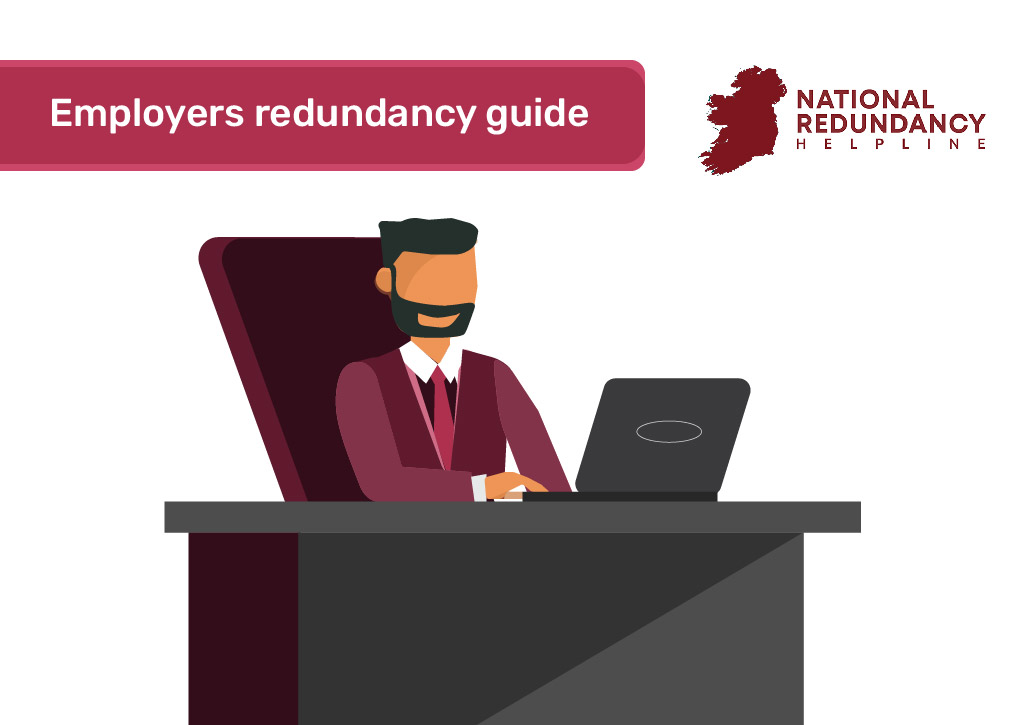
How to Legally Make an Employee Redundant
In order to legally make an employee redundant, an employer must be able to justify that the dismissal meets the conditions of a ‘genuine redundancy’.
A genuine redundancy can be on the basis of:
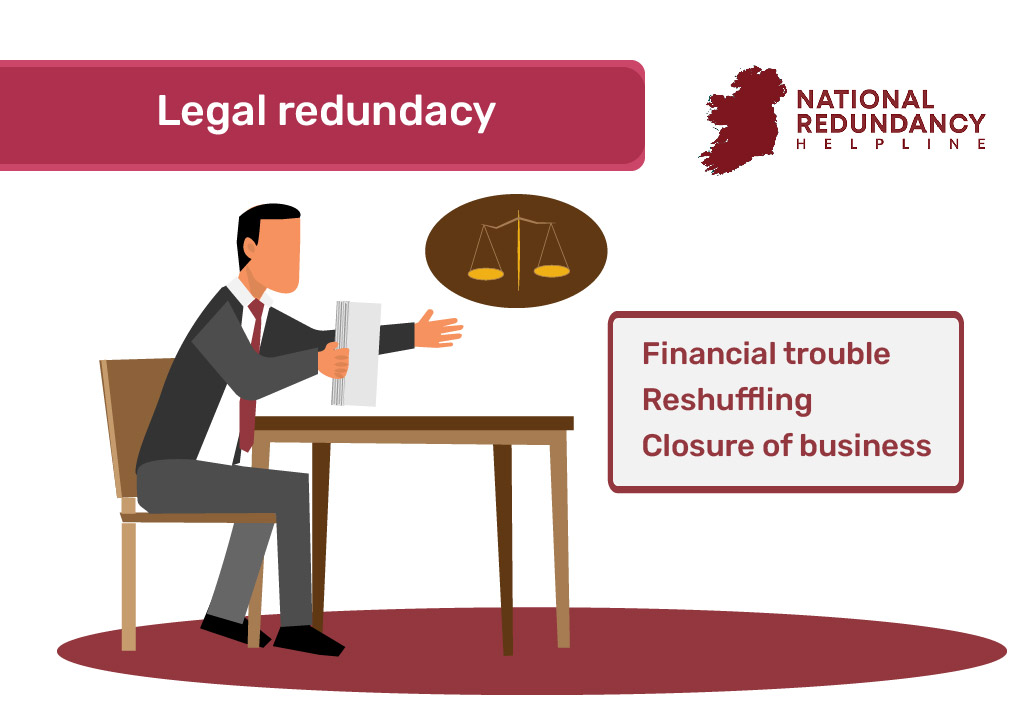
Financial Trouble:
The business may need to cut costs to remain financially viable and the employee may be deemed surplus to requirements as a result.
Reshuffling:
If a business needs to be reorganised so as to maintain its profitability, the employer may decide to reduce the number of staff at their disposal. In that instance, there may be a fair basis for redundancy.
Obsolete Labour: Your role in the business may become less important as time moves on and technology advances. If your employer no longer has a need for your skillset, you may be a candidate for redundancy.
Closure of the Business:
If a business moves or closes down, redundancy may be a means of fairly dismissing staff.
Redundancy differs from other forms of dismissal because it relies on an employee’s role, or their value to a business, diminishing to the point that the existence of their job is no longer viable.
Types of Redundancy
Redundancy is not always forced on an employee and sometimes an employer will look to encourage members of staff to take a redundancy package as opposed to informing them of their being made redundant.
Because of this, there are two primary types of redundancy – compulsory and non-compulsory redundancy.
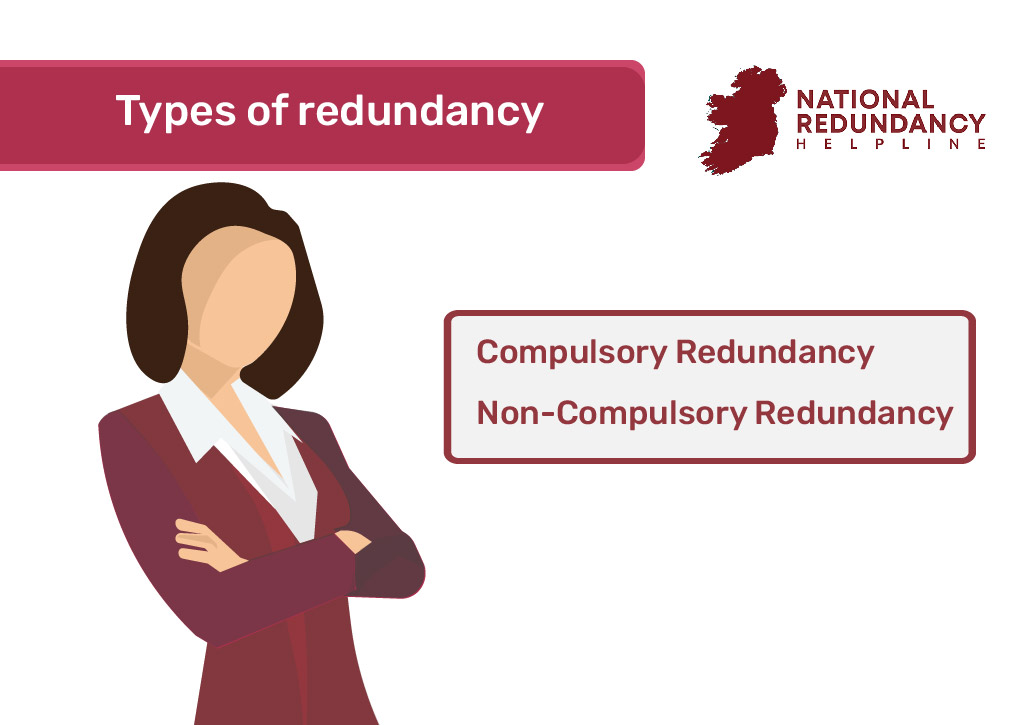
Compulsory Redundancy
This occurs when an employer chooses the employee/s being made redundant and informs them that they will not be continuing in their role.
Non-Compulsory Redundancy
If, for instance, a business is not making enough money, but it is considered to be a holistic problem as opposed to a specific employee’s role becoming less viable, an employer may offer voluntary redundancy packages.
This can involve employees volunteering to be selected for redundancy or being incentivised to retire early.
Can Someone Be Fired on the Spot?
In Ireland, an employer has grounds to immediately dismiss an employee if their behaviour constitutes gross misconduct.
Gross misconduct breaches the relationship between employer and employee and warrants dismissal without any period of notice.
Examples of behaviour that can get an employee fired on the spot include:
- Bullying or harassment.
- Inebriation.
- Theft.
- Assault.
- A clear and significant breach of company policy.
Your employment contract should provide more clarity as to the specific types of misconduct that can warrant instant dismissal.
Grounds for Unfair Dismissal
Whether it is through being made redundant or any other form of dismissal, there are laws in Ireland protecting an employee’s rights when it comes to losing your job.
If you feel as though you have been unfairly dismissed from your role, you should consider contacting an employment law solicitor for advice on how to rectify your situation.
Some grounds for dismissal that are considered unfair include a dismissal based on:
- Race.
- Sexuality.
- Gender.
- Membership of a trade union.
- Age.
- Religious or political views.
- Pregnancy.
- Membership of the travelling community.
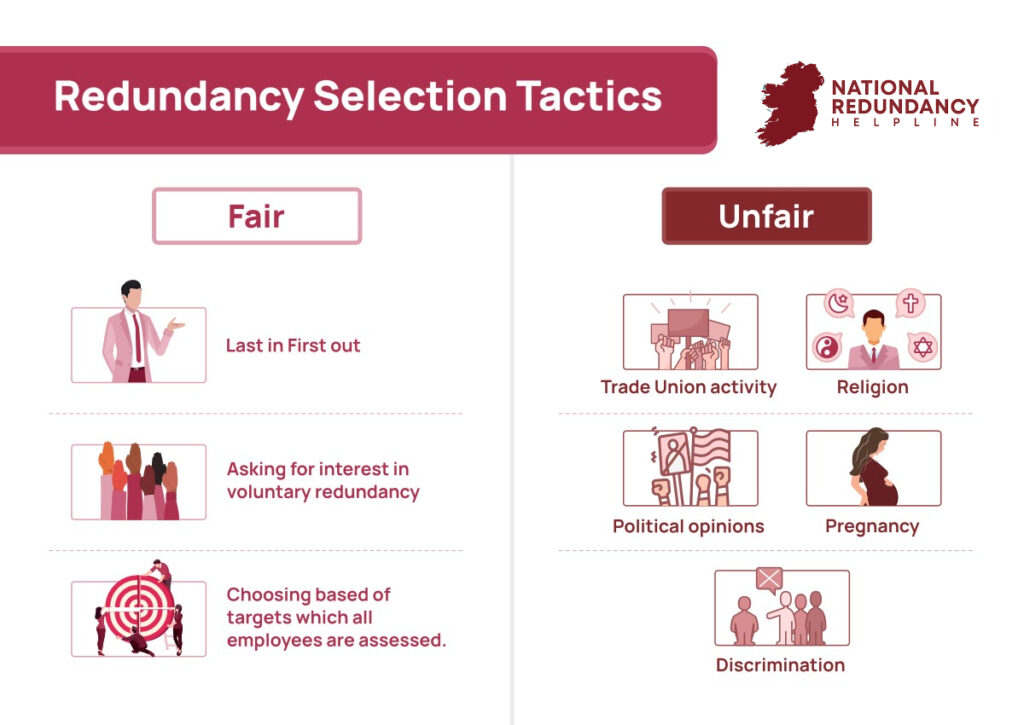
Generally speaking, redundancy is a fair mode of dismissal as long as the employer follows proper procedure.
If, however, you feel you have been unfairly selected for a redundancy package or that your dismissal did not meet the conditions of a genuine redundancy, you may be able to pursue a legal case.
Get in touch with our team at National Redundancy Helpline today for a concise and comprehensive evaluation of your redundancy.
What Can an Employee Do if They are Wrongfully Terminated?
If you are unfairly dismissed in Ireland, you can bring a claim before the Workplace Relations Commission.
Any claim must be made within six months of the dismissal happening, and usually you must have been in your job for a minimum of twelve months.
If you have been in your role for less than twelve months, you may still be able to file a claim for wrongful termination if you were fired on discriminatory grounds.
How to Prepare Yourself for Redundancy
Experiencing redundancy can be traumatic and a very difficult process for any employee, but there are steps you can take to ensure you come through it.
If there is talk of redundancy packages on the horizon in your company, consider the following steps to prepare yourself for that situation:
- Review your own finances.
- Find out how much redundancy pay you are entitled to.
- Find out what benefits you are entitled to.
- Seek financial advice.
- Update your CV.
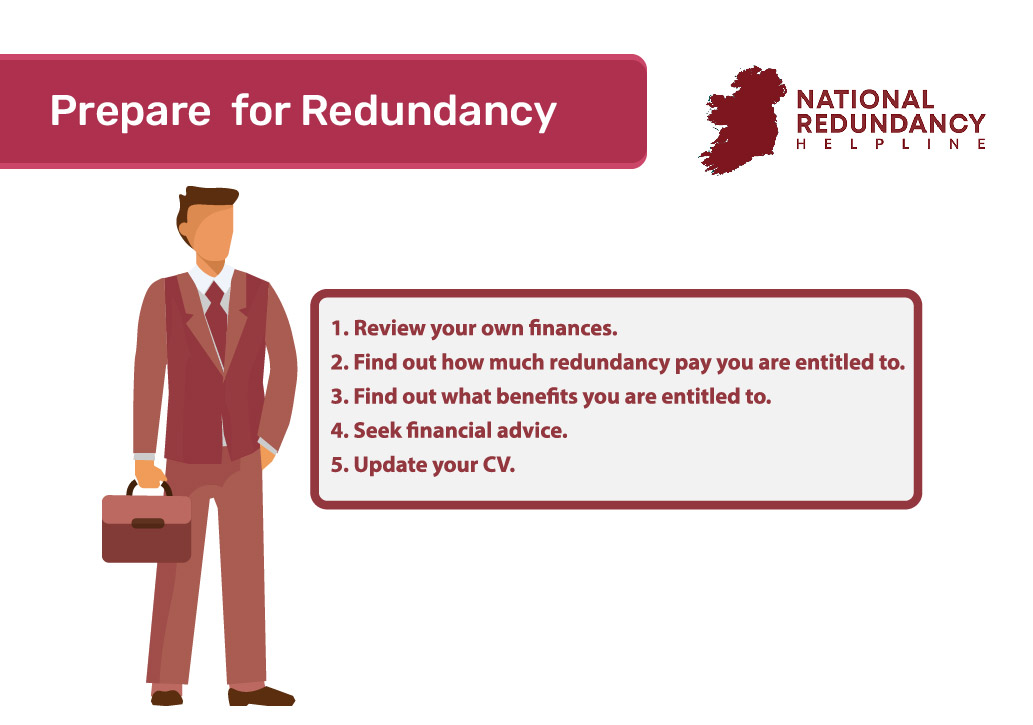
Review Your Own Finances
If you are someone who does not pay particularly close attention to your monthly income and expenditure, it is time to analyse your financial situation and get a grasp on how redundancy might impact it.
Consider budgeting more of your finances and accounting for the coming months.
Find Out How Much Redundancy Pay You Are Entitled To
Ensuring you receive a fair redundancy package, and working out how much that figure should amount to, is crucial in moving on from being made redundant.
The sooner you can work out the logistics of redundancy the better shape your career will be in.
Find Out What Benefits You Are Entitled To
Irish law ensures that recently unemployed people are entitled to certain government benefits to help them adjust to a new financial position.
Work out the benefits that can help you in redundancy as you begin searching for another job.
Seek Financial Advice
You may want to consider contacting an experienced financial advisor for help in planning your next career move.
If you are being made redundant, you can get in touch with National Redundancy Helpline for guidance on your situation.
Update Your CV
Lining up your next job may take time but, especially if you have been in your current role for a long time, you should look to update your CV as soon as possible.
Consider what sort of profession might suit you next, and potentially try to upskill in the hope of finding a suitable offer.
Contact the National Redundancy Helpline Today
If you have any further questions about the correct redundancy process, or about a redundancy package you yourself have been offered, feel free to contact us today.
We are available to evaluate your redundancy and offer friendly, specialist advice on how to move forward.



